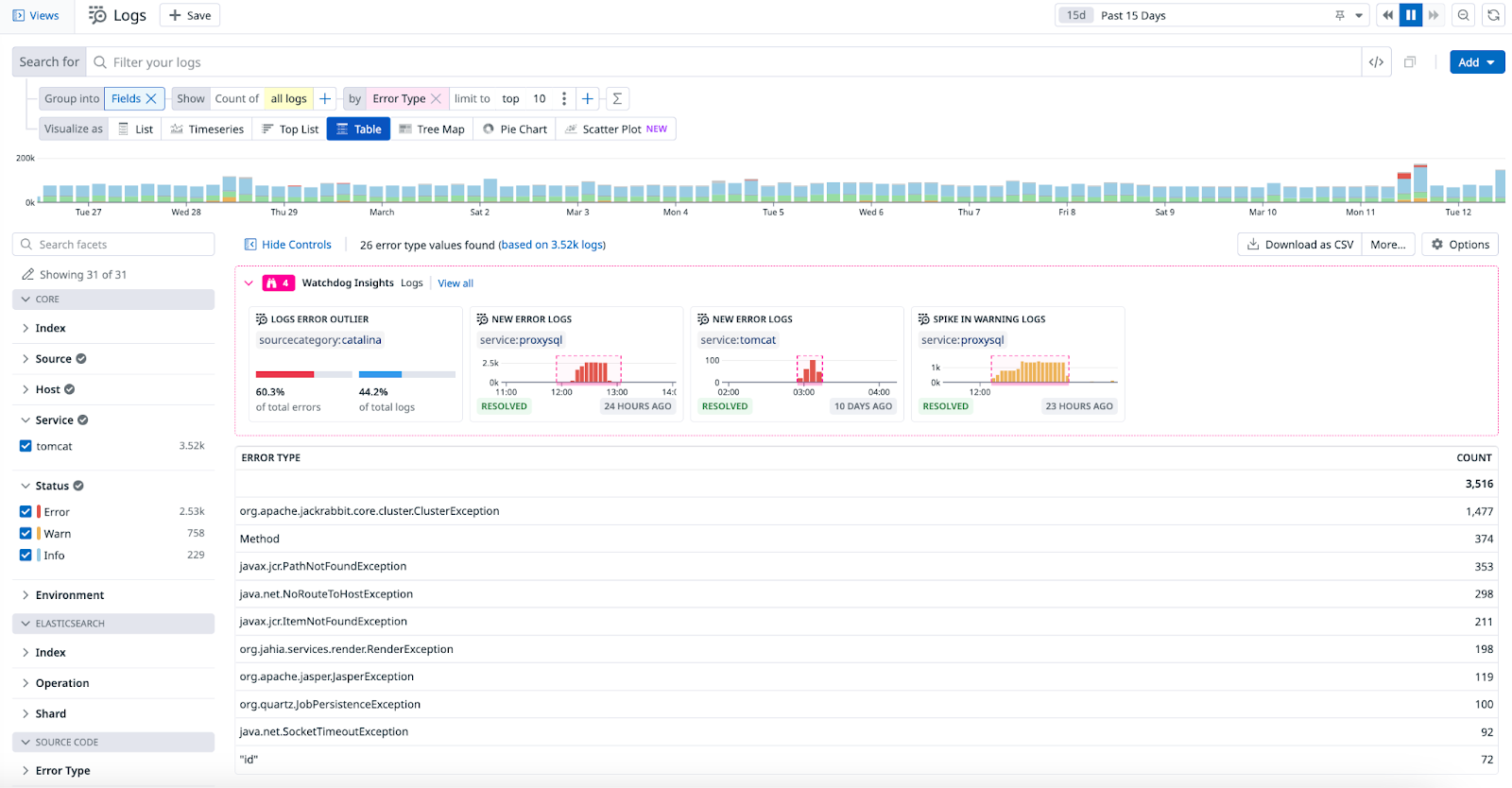CMS with cloud hosting: what monitoring tools are needed?

Jahia Cloud's default environment monitoring tool is Datadog. This tool aggregates all your logs, providing a centralized, clear and intuitive view of the performance of your web interfaces.
What monitoring capabilities are available in CMS with Cloud hosting?
Among Datadog's most frequent uses are its ability to:
- list the most frequent errors in Jahia,
- list the pages that return the most 404s,
- easily measure latency (and therefore UX irritants) and identify bottlenecks with APM (Application Performance Management).
These features may vary from tool to tool, but there's a relative homogeneity on the market when it comes to the data you'll be able to track with CMS Cloud hosting.
What can make the difference, however, is an intuitive interface, the quality of the data-visualization, or even the customization capabilities available to you. For example, a tool such as Datadog offers a number of basic functions accessible to non-technical users, as well as more advanced possibilities for those with a higher level of technical expertise (use of APM, for example).

Use case: keep your tools with Cloud hosting
Some Jahia customers choose to keep their own tools alongside Datadog to monitor server data for their Cloud-hosted CMS. The Jahia Cloud service has been designed to adapt to all situations.
Why keep your legacy tools when migrating to the cloud?
For companies, this choice can have several justifications, among which:
- internal processes that do not allow data migration,
- a desire to maintain working habits with tools that web and IT teams have mastered,
- or, more simply, a desire to reduce migration times.
In the latter case, please note that depending on your infrastructure, setting up a script to transfer data from Datadog to your historical tracking and monitoring tool is not necessarily faster than a complete migration.
Example of cloud migration: the European Broadcasting Union
For the EBU, moving to Jahia Cloud meant making a choice: keep the historical monitoring tool (Splunk), or adopt Datadog.
Datadog is great, but some of the EBU's businesses have Splunk-based dashboards, scripts and so on. Even though log forwarding from Datadog to Splunk works very well, we wanted to be consistent about the format of the logs received in Splunk so that the scripts and dashboards we had would continue to work.
Verdict: the flexibility of Jahia Cloud has enabled business users to continue using Splunk, thanks to filters that convert data into the right format during transfer. The web team, for its part, now uses Datadog to monitor Jahia sites.


